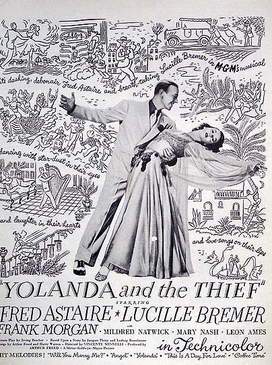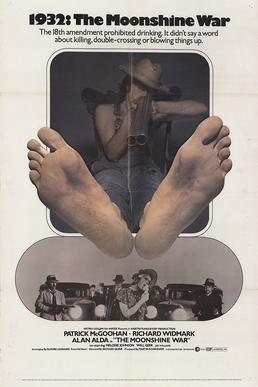
The Naked Spur is a 1953 American Western film directed by Anthony Mann and starring James Stewart, Janet Leigh, Robert Ryan, Ralph Meeker, and Millard Mitchell. Written by Sam Rolfe and Harold Jack Bloom, the film is about a bounty hunter who tries to bring a murderer to justice, and is forced to accept the help of two strangers who are less than trustworthy.

Alfred Zinnemann was an Austrian-American film director and producer. He won four Academy Awards for directing and producing films in various genres, including thrillers, westerns, film noir and play adaptations. He began his career in Europe before emigrating to the US, where he specialized in shorts before making 25 feature films during his 50-year career.
The Search is a 1948 American film directed by Fred Zinnemann that tells the story of a young Auschwitz survivor and his mother who search for each other across post-World War II Europe. It stars Montgomery Clift, Ivan Jandl, Jarmila Novotná and Aline MacMahon.

Jeanette Helen Morrison, known professionally as Janet Leigh, was an American actress. Her career spanned over five decades. Raised in Stockton, California, by working-class parents, Leigh was discovered at 18 by actress Norma Shearer, who helped her secure a contract with Metro-Goldwyn-Mayer.

Peter Sydney Ernest Lawford was an English-American actor.

Emmett Evan "Van" Heflin Jr. was an American theatre, radio, and film actor. He played mostly character parts over the course of his film career, but during the 1940s had a string of roles as a leading man. Heflin won the Academy Award for Best Supporting Actor for his performance in Johnny Eager (1942). He also had memorable roles in Westerns such as Shane (1953), 3:10 to Yuma (1957), and Gunman's Walk (1958).

Robert Bushnell Ryan was an American actor and activist. Known for his portrayals of hardened cops and ruthless villains, Ryan performed for over three decades. He was nominated for the Academy Award for Best Supporting Actor for his role in the film noir drama Crossfire (1947).

Johnny Eager is a 1941 American film noir directed by Mervyn LeRoy and starring Robert Taylor, Lana Turner and Van Heflin. Heflin won an Academy Award for Best Supporting Actor. The film was one of many spoofed in Dead Men Don't Wear Plaid (1982).

George Sidney was an American film director and producer who worked primarily at Metro-Goldwyn-Mayer. His work includes cult classics Bye Bye Birdie (1963) and Viva Las Vegas (1964). With an extensive background in acting, stage direction, film editing, and music, Sidney created many of post-war Hollywood's big budget musicals, such as Annie Get Your Gun (1950), Show Boat (1951), Kiss Me Kate (1953), Jupiter's Darling (1955), and Pal Joey (1957). He was also a president of the Screen Directors Guild for 16 years.

Phyllis St. Felix Thaxter was an American actress. She is best known for portraying Ellen Lawson in Thirty Seconds Over Tokyo (1944) and Martha Kent in Superman (1978). She also appeared in Bewitched (1945), Blood on the Moon (1948), and The World of Henry Orient (1964).

Yolanda and the Thief is a 1945 American Technicolor MGM musical-comedy film set in a fictional Latin American country. It stars Fred Astaire, Lucille Bremer, Frank Morgan, and Mildred Natwick, with music by Harry Warren and lyrics by Arthur Freed. The film was directed by Vincente Minnelli and produced by Arthur Freed.

The Clock is a 1945 American romantic drama film starring Judy Garland and Robert Walker and directed by Garland's future husband, Vincente Minnelli. This was Garland's first dramatic role, as well as her first starring vehicle in which she did not sing.

Houdini is a 1953 American Technicolor biographical film from Paramount Pictures, produced by George Pal and Berman Swarttz, directed by George Marshall, that stars Tony Curtis and Janet Leigh. The film's screenplay, based upon the life of magician and escape artist Harry Houdini, was written by Philip Yordan, based on the book Houdini by Harold Kellock. The film's music score was by Roy Webb and the cinematography by Ernest Laszlo. The art direction was by Albert Nozaki and Hal Pereira, and the costume design by Edith Head.
The Seventh Cross is a 1944 American drama film, set in Nazi Germany, starring Spencer Tracy as a prisoner who escaped from a concentration camp. The story chronicles how he interacts with ordinary Germans, and gradually sheds his cynical view of humanity.

Right Cross is a 1950 American sports drama film released by Metro-Goldwyn-Mayer, directed by John Sturges, written by Charles Schnee and starring June Allyson, Ricardo Montalbán, Dick Powell, Lionel Barrymore and Marilyn Monroe.

The Moonshine War is a 1970 American crime comedy-drama film directed by Richard Quine, based on the 1969 novel of the same name by Elmore Leonard. It stars Patrick McGoohan, Richard Widmark, Alan Alda, and Will Geer.
Man's Fate was an abandoned 1969 film adaptation of the novel Man's Fate by Andre Malraux to have been directed by Fred Zinnemann and produced by Metro-Goldwyn-Mayer (MGM).

The Big Bounce is a 1969 American drama film directed by Alex March, based on the 1969 novel of the same name by Elmore Leonard and starring Ryan O'Neal in his film debut, Van Heflin, and Leigh Taylor-Young in what was the first of several films based on Leonard's crime novels. Taylor-Young was nominated for a Laurel Award for her performance in the film. The film was shot on location in Monterey and Carmel, California.

Any Number Can Play is a 1949 melodrama film starring Clark Gable and Alexis Smith, with Wendell Corey and Audrey Totter in support. Directed by Mervyn LeRoy, it is based on Edward Harris Heth's novel of the same name.

Gangway for Tomorrow is a 1943 American anthology film produced and directed by the Austrian-American John H. Auer, and originally known by its working title, An American Story. Steeped in the propaganda tones of early World War II features, the film is largely B-fare.
















